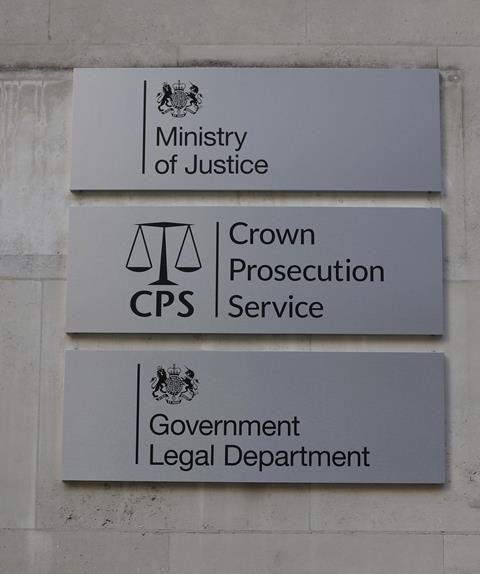It is fair to say that most transactional lawyers are unlikely to have experienced the workings of legal aid, whether in a criminal context or otherwise. The corporate and commercial world of law is vastly different – but it is for this very reason that we should take a moment to consider the ongoing struggle of our friends and colleagues who have dedicated themselves to the world of criminal legal aid defence.
The story so far

On 8 January Young Legal Aid Lawyers (YLAL) organised a meeting attended by junior lawyers and the Ministry of Justice. Readers may be aware that the MoJ is in the process of undertaking a criminal legal aid review. The review was announced in December 2018 but was delayed as a result of the general election. The review is now back in full swing, although the MoJ was unable to confirm when the report will be issued. Summer 2020 was, and remains, the target but it seems unlikely this deadline will be met given the delays to date.
The MoJ is particularly focused on making legal aid defence work a more attractive specialism for lawyers, to improve social mobility and retention. Given that the average age of a duty solicitor is thought to be 47, you can understand why this is so important. The purpose of the meeting was to explore what can be done to achieve these aims, but it was clear from most of the answers and comments that it all comes back to one thing: money.
Looking at the numbers
Solicitors Regulation Authority statistics from November 2017 show that only 2.9% of all trainees are working in criminal legal aid, whereas trainees in real estate and corporate make up 31.6%. Firms specialising in criminal work pay the lowest salaries to their trainees. Pay rarely exceeds the Law Society recommended minimum (£22,121 in London and £19,619 outside for 2019/20). In some circumstances undoubtedly salaries will be lower than the recommended minimum. Yet those in the commercial sector can often enjoy a substantially higher salary. This gulf remains on qualification, when a leading legal aid firm will pay its newly qualified solicitors £24,000 but (according to GlassDoor) the average for all newly qualified solicitors is £45,000. The Law Society’s website states that the average salary of a solicitor working full-time in private practice is £62,000.
Assuming a trainee solicitor will have attended university for three years in London (full-time), taking on the maximum tuition and maintenance loan, and completing the LPC (£16,690 at BPP, London), the total debt they can expect on graduation is around £78,000. You cannot blame graduates with this level of debt for pursuing a better remunerated area of law. It is no wonder that a low salary, combined with the sheer amount of work and time spent at police stations at unsociable hours, makes criminal defence work particularly unattractive to junior lawyers.
Despite the low salary and high workload, some still pursue a career in legal aid criminal defence because they are powered by their unwavering passion and dedication. However, one can only ignore the possibility of a role with the Crown Prosecution Service for so long (a Crown prosecutor in London can expect a starting salary of £43,000-£47,000). How can we proceed with a justice system where those working for the prosecution are earning almost twice as much as the legal aid defence lawyer? This imbalance is resulting in a skills shortage in legal aid defence, impacting on the ability of the most vulnerable people in our society to secure access to justice.
How can we proceed with a justice system where those working for the prosecution are earning almost twice as much as the legal aid defence lawyer?
Show me the money
By increasing the amount of money in the pot for legal aid there will be more money available to firms, which can in turn increase salaries and become more competitive. One obvious route to increasing funds is to address finally the fixed-fee structure introduced in the 1990s. Instead of lawyers charging an hourly rate, cases are assigned a standard fee depending on its category. These fees have not increased a penny since they were introduced; not even in line with inflation. The MoJ has to consider this fee structure as part of the review process if it wishes to rescue criminal defence practice.

The Junior Lawyers Division recently met MoJ representatives to discuss the ongoing review and its impact on members in this line of work. The JLD is committed to working with the YLAL, and the Young Barristers Committee, to fight for better working conditions in the criminal defence sector. Something has to change.
Ollie Grech, a solicitor at Devonshires, is an executive committee member of the JLD































No comments yet